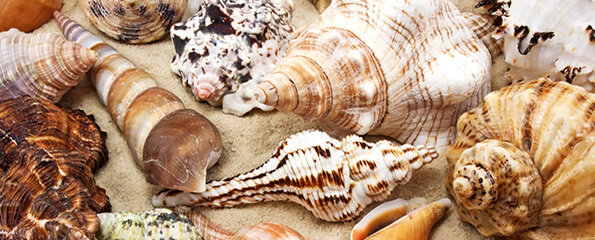Novel anti-inflammatory in Australian marine snail
An Australian sea snail is proving to be a powerhouse of medicinal compounds, with its anti-inflammatory properties the latest to be discovered by researchers at Southern Cross University and the University of Southern Queensland.
Published today in PLOS ONE, the study investigated the effects of the snail extract and a pure brominated compound produced by the snail in a mouse model for acute lung inflammation. It builds on in vitro work previously published in the journal Marine Drugs demonstrating that the snail extract and compounds can inhibit inflammatory responses in cultured human cell lines.
The research was undertaken by Ph.D. candidate student Tarek Ahmad, supervised by Associate Professor Kirsten Benkendorff, both from Southern Cross University and in association with Professor Michael Kotiw of the University of Southern Queensland (USQ).
Sea snails have been used in traditional medicine around the world for centuries.
Professor Benkendorff has been investigating the promising anti-cancer activity of extracts from the Australian marine snail Dicathais orbita over the last decade in collaboration with researchers at Flinders University.
“Inflammation is closely linked to cancer with many shared molecular pathways. Therefore many anti-cancer agents have the potential to be used to treat inflammation,” said Professor Benkendorff.
“Consequently, we initiated this new collaboration with researchers at USQ to determine if the snail compounds were an effective treatment in a live animal model of acute inflammation. The results were better than we expected.”
After demonstrating that the snail extracts and compounds were effective at inhibiting key inflammatory pathways in human cells, Tarek selected one active extract and the compound 6-Bromoisatin for testing in the mouse model of lung inflammation.
“The treatments significantly reduced the major molecular markers of inflammation in lung fluids, reduced the infiltration of inflammatory white blood cells and preserved the lung architecture compared to the placebo control,” Tarek said.
“New non-steroidal drug leads to the treatment of inflammation are urgently needed. Marine molluscs are widely used as traditional medicines for the treatment of inflammation, but few scientific studies have been undertaken to test the efficacy of these natural medicines. Our study indicates the potential for developing new scientifically substantiated natural anti-inflammatory medicines from these marine snails.”
The laboratory testing was done at the University of Southern Queensland campus in Toowoomba.
“Mouse model of acute lung inflammation is a well-established means for investigating acute lung injuries such as pneumonia and acute respiratory distress syndrome in humans and for exploring potential therapeutic treatments,” Professor Kotiw said.
“The results from this study are very promising, suggesting that snail compounds such as described here can systemically ameliorate the early inflammatory response and protect lung architecture in response to an inflammatory stimulation.”
The research team plans to continue collaborating to further optimise the use of snail extracts for anti-inflammatory applications.
(Source: Southern Cross University, PLOS ONE)
Dates
Tags
Created by:

 Login
Login














